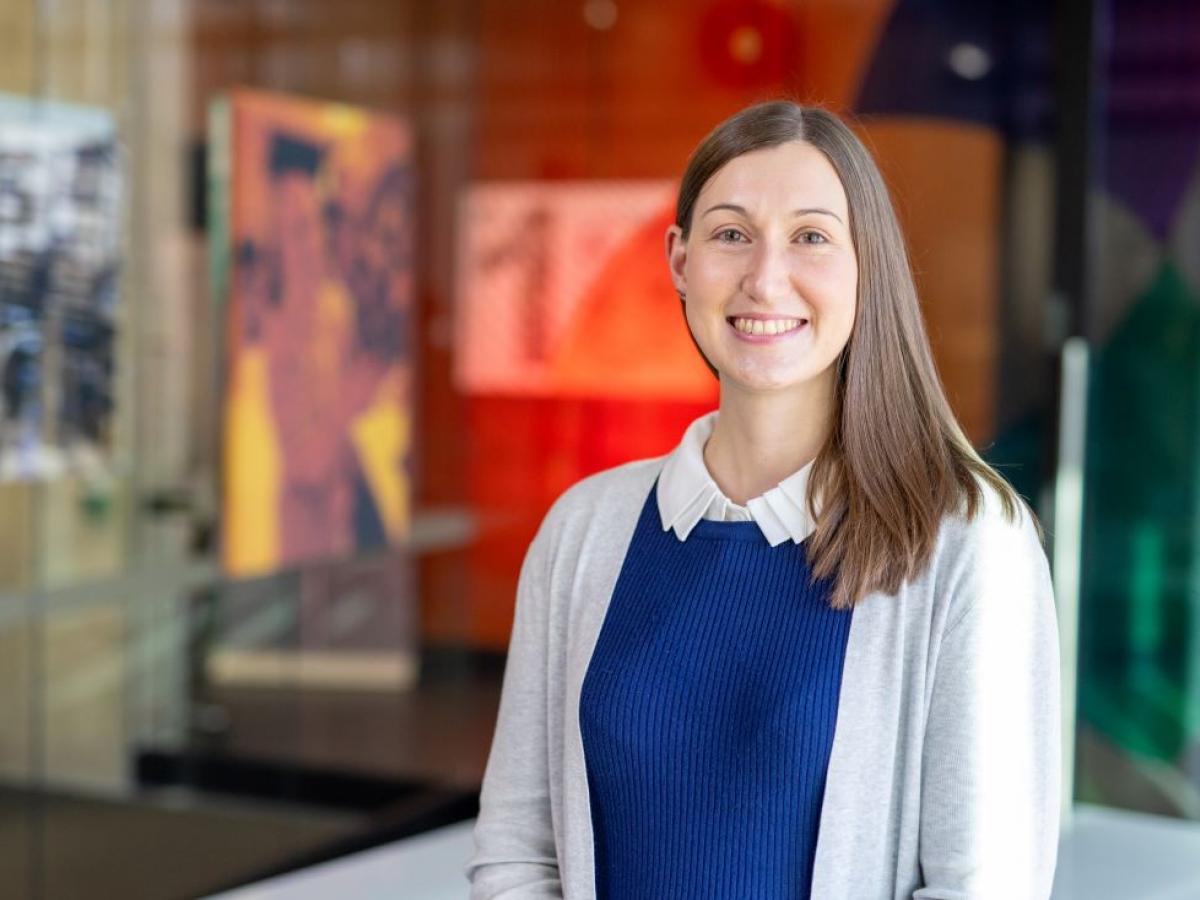Fellowships grants build industry connections
The University of Adelaide has been awarded over $2.5 million in funding to activate six innovative research projects as part of the Australian Research Council (ARC) Early Career Industry Fellowships scheme.

Dr Sarah Scholten is a recipient of the Early Career Industry Fellowships grants
With the aim to develop industry collaboration skills of early career researchers, the fellowships scheme creates pathways to support academic researchers in establishing careers in industry and produce mobility, skill-building research.
Researchers will be tackling topics from minimising risk of smoke tainted grapes for viticulture to developing a high-performance atomic clock for satellites.
The University of Adelaide Deputy Vice-Chancellor (Research), Professor Anton Middelberg congratulated the successful early career researchers.
“It’s fantastic news to hear that six of our researchers will be able to bring their projects to life, each of which involve excellent industry partnerships,” says Professor Middelberg.
“At the University of Adelaide, as one of Australia’s premier research institutions, we take great pride in our pioneering research that delivers tangible benefits.”
The full list of University of Adelaide recipients are:
Dr Jessica Marsh, Biological Sciences, received $467,691 for Conserving Caves: Developing Tools to Safeguard Subterranean Biodiversity. Dr Marsh is working with Invertebrates Australia, Australian Speleological Federation, Queensland Museum, Western Australian Museum, and Cave Invertebrate Specialist Group to develop an innovative technique to document and protect the biodiversity of the Nullarbor Caves.
Dr Weitong Chen from the School of Computer and Mathematical Sciences received $458,441 for his project Future of Work: Achieving Efficiency and Productivity through Optimisation. Dr Chen has partnered with SA Pathology to address scheduling and resource allocation through a data-driven optimiser to identify optimal resource allocation in these industries, promising accurate workload forecasting, reduced task duration, and enhanced public wellbeing.
Dr Mango Parker, Australian Wine Research Institute Senior Research Scientist received $453,691 to minimise risk of smoke tainted grapes for viticulture. She will work with industry partners, The Australian Wine Research Institute, Commonwealth Scientific and Industrial Research Organisation, and Defence Science and Technology Group to generate new data and capability to detect and measure volatiles in smoke, providing new information to enhance smoke forecasting, and burn management strategies to benefit grape-growers.
Dr Gemeng Liang from the School of Chemical Engineering received $410,691 for his project, Cobalt-Free Nickel-based Lithium-ion Battery Cathodes for Electric Vehicles. Dr Liang is working with IonDrive Technologies to develop a low-cost, high-energy and durable lithium alternative for electric vehicles. It will offer substantial opportunities for Australia to establish global leadership in battery manufacturing and to add high values to Australia’s mining products.
Dr Sailin Liu from the School of Chemical Engineering received $411,291 for her All-temperature Aqueous Zinc Ion Batteries for Stationary Energy Storage Project. In partnering with IonDrive Technologies, Dr Liu will design harsh-temperature-adaptable aqueous zinc ion batteries using a novel electrolyte solvation structure design. The project’s success will provide an all-temperature AZIBs system for renewable and stationary energy storage, reinforcing Australia’s research strength in promoting clean and sustainable energy technology bringing both scientific and economic benefits.
Dr Sarah Scholten from the School of Physics, Chemistry and Earth Sciences received $392,000 for her project, Quantum Clock for Assured Global Navigation: Global Positioning System 2.0. Dr Scholten, who is an experimental physicist at the University’s Institute for Photonics and Advanced Sensing, will partner with QuantX Labs to design and deliver a high-performance atomic clock with 10 times improved performance and a lower size, weight and power consumption for use on a satellite.
See the full list of Early Career Industry Fellowships 2024 round 1 recipients.
Media contacts:
Lara Pacillo, Media Officer, The University of Adelaide. Mobile: +61 404 307 302. Email: lara.pacillo@adelaide.edu.au
